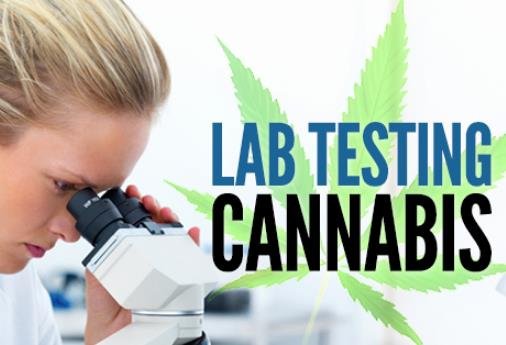The cannabis industry and universities have been eyeing each other for years, but 2025 could be the year they finally come together in a meaningful way. As cannabis research gains momentum and regulatory changes appear imminent, these partnerships could shape the industry’s future. The big question is: Will legal and financial hurdles finally loosen enough to let innovation thrive?
A Long-Awaited Collaboration
Universities and private industries partnering for research is nothing new. But the cannabis sector has been hesitant—mainly because marijuana remains illegal at the federal level in the United States. This legal gray area has made many institutions wary of taking funding from cannabis companies or engaging in joint research.
That’s starting to change. The industry is maturing, and forward-thinking companies are pushing for academic collaboration. Universities, always on the hunt for research funding and innovation opportunities, are beginning to recognize the value in working with cannabis businesses.
Some areas ripe for collaboration include:
- Research partnerships focusing on cultivation, genetics, and medical applications.
- Sponsored research agreements that allow companies to tap into university expertise.
- Licensing arrangements where schools patent cannabis-related innovations.
- Joint ventures in product development, agricultural advancements, and biotechnology.

Universities Are Already Testing the Waters
Despite legal challenges, some universities have been quietly making moves in cannabis research. Academic programs focused on marijuana are popping up across the U.S., even in states where cannabis remains illegal.
A few schools leading the way:
- University of Kentucky, Clemson University, University of North Carolina, and Cornell University have collaborated with hemp farmers on pesticide management, crop optimization, and seed genetics.
- Johns Hopkins University has launched the Cannabis Science Laboratory, researching the effects of different THC isomers, the risks of oral CBD on drug metabolism, and real-world impacts of medicinal marijuana.
Johns Hopkins’ work is particularly significant. Their focus on THC’s effects and medical cannabis outcomes highlights how universities can bring credibility and scientific rigor to an industry often clouded by misinformation. If more schools get involved, expect research breakthroughs that could reshape cannabis policy and products.
Europe Could Set the Model
While the U.S. wrestles with federal restrictions, Europe is forging ahead. Germany, in particular, is taking a measured, science-driven approach to legal cannabis. Even after legalizing recreational marijuana, sales are limited to pharmacies and online medical clinics.
Germany’s upcoming retail pilot program could be a game-changer for university partnerships. The government plans to integrate academic research into the program, much like models in the Netherlands and Switzerland. This five-year study will focus on controlled sales in select cities, with a strong emphasis on consumer behavior and health outcomes.
Leading the charge:
- Sanity Group, a Berlin-based cannabis company, is heading the program.
- Humboldt University of Berlin will provide scientific oversight, led by Professor Christian Ulrichs.
- Cannavigia, a Swiss software firm, will track sales and supply chains with a meticulous documentation system.
Even Canadian cannabis giant High Tide is jumping in, partnering with universities to analyze consumer behavior and provide insights for the German government. The takeaway? Europe’s structured approach could serve as a model for U.S. universities looking to enter the cannabis space while navigating legal concerns.
The Untapped Potential of Licensing Agreements
Universities don’t just conduct research; they create valuable intellectual property (IP). While schools generally don’t commercialize products themselves, they often license their discoveries to private companies. Cannabis businesses, hungry for innovative solutions, could be key beneficiaries of this system.
Lance Anderson, a partner at Dickinson Wright law firm and former counsel for a major research university, sees licensing as a huge opportunity.
“Cannabis businesses are no strangers to utilizing multiple entities in their corporate structuring,” Anderson explains. “They have separate entities for real estate, staffing, and intellectual property. Now, they’re realizing they can license university-owned patents to gain an edge.”
Johns Hopkins is a prime example. Its technology transfer office assesses cannabis-related innovations with questions like:
- What problem does this solve, and how significant is the need?
- Is this an incremental improvement or a groundbreaking discovery?
- What kind of company might license this technology?
- How much additional funding is needed for commercialization?
This kind of structured evaluation process ensures that only high-impact innovations make it to market. For cannabis businesses, tapping into university-owned patents could lead to breakthroughs in cultivation techniques, extraction processes, and even pharmaceutical applications.
Could Rescheduling Cannabis Be the Final Push?
One of the biggest roadblocks to university-cannabis partnerships has been federal law. However, marijuana rescheduling is now a real possibility in the U.S. If the government moves cannabis from Schedule I (highly restricted) to a lower classification, it would open the door for more public-private collaborations.
If rescheduling happens:
- More federal funding could become available for cannabis research.
- Universities would face fewer legal risks in partnering with cannabis companies.
- Institutional investors, currently wary of the industry, might start pouring in money.
For now, universities remain cautious. But if the legal landscape shifts in 2025, expect a flood of partnerships that could redefine how cannabis is studied, produced, and sold.
The future of cannabis research won’t be shaped by industry alone. Universities have the expertise, credibility, and resources to drive major advancements. The only question is whether 2025 will be the year they fully step into the cannabis space—or if legal red tape will keep these collaborations on hold a little longer.
